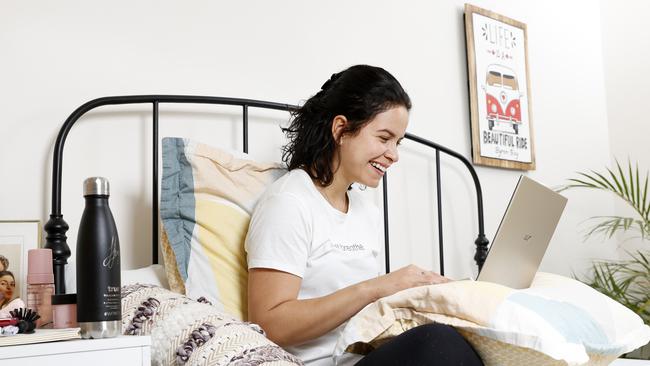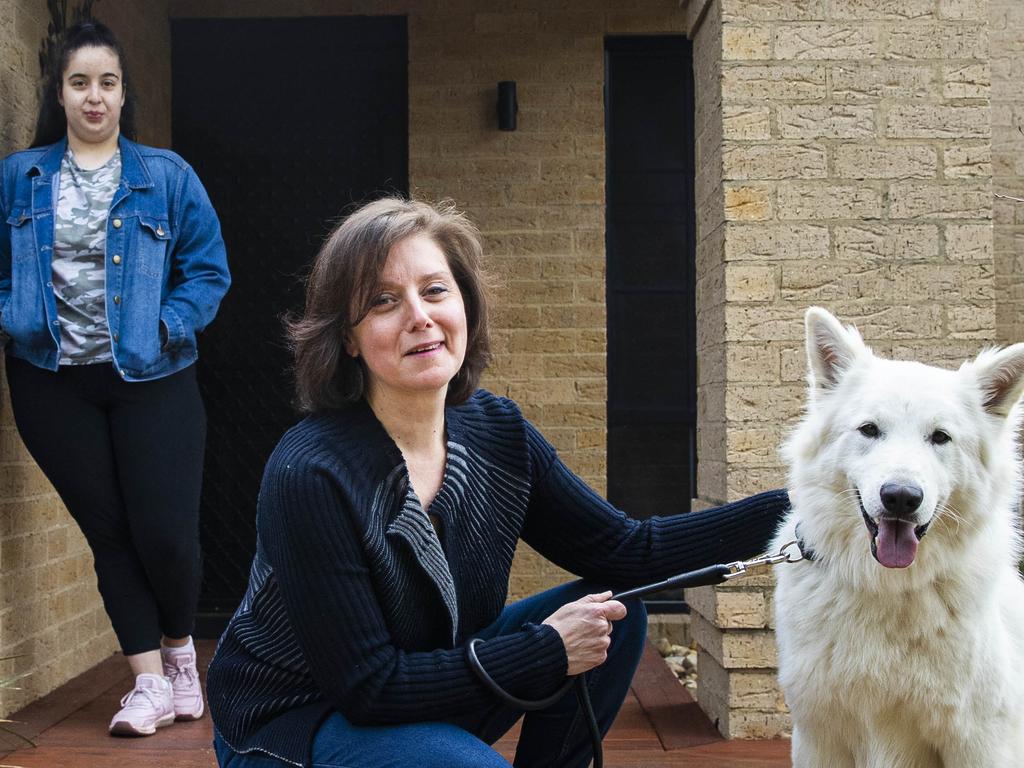Working from bed? Your employer is watching, and you gave consent
New polling shows 39 per cent of employers are recording their workers’ performance with webcams and keystroke counters. Experts say employees gave consent to this.

Employers who use technology to monitor their staff as they work from home may not be breaching privacy laws despite engaging webcams and keystroke counters inside the bedrooms and private residences of employees, a leading tech lawyer says.
In many cases, employees likely consented to their boss doing so, Nicole Murdoch said.
Polling released this week by the Australian Institute showed 39 per cent of workers reported their employers were recording their performance by engaging webcams and keystroke counters.
Centre for Future Work economist Dan Nahum, who led the polling, said survey respondents had reported some alarming instances of employer monitoring.
“I think there’s really a quite insidious growth in employees being watched in their personal space,” he said. “Frankly, we see that there are what I would describe as inalienable rights to privacy that are really being breached by these technologies right now.”
One of the most “disturbing” cases involved an employee whose payroll app had a built-in GPS tracker.
“He actually can’t engage with his employer to get paid unless he consents to being followed around by that employer,” he said. “I find that very disturbing … and I’d also point out that there just doesn’t seem to be the legislative response that has kept pace with the growth of these technologies.”
Ms Murdoch, of Eaglegate Lawyers, said policies allowing an employer to monitor an employee’s work were more common than most realised.
“ … it’s fairly standard now that where a computer is provided to work, monitoring on that computer’s usage will occur to ensure employees are working,” she said.
While employee monitoring is generally allowed across the nation, the legalities differ in each state.
In NSW, the Workplace Surveillance Act prevents any monitoring within changerooms or bathrooms and requires an employer to seek authority to establish any covert surveillance during work hours unless in circumstances involving law enforcement, correctional centres, courts and casinos.
While the privacy act covers NSW employees in certain areas, monitoring may fall under an employee’s record and may be exempt from the operation of the Privacy Act.
“Surveillance of an employee to the extent that it’s part of what’s known as the employee record is not governed by the Privacy Act; it’s governed by state and territory legislation,” Ms Murdoch said.
“At the end of the day an employee does have protections under state and territory law as well.”
Ms Murdoch said there could be grey areas when it came to working from home, especially when a bathroom might be in sight of an employee’s primary work space.
“Unfortunately, there’s no one answer all around Australia as to whether it’s legal, but generally workplace monitoring is considered legal,” she said. “The issue will become how the employer then uses that information.”
Ms Murdoch said she was surprised to learn about the high use of keylogging devices.
“I was a little shocked to see that 30 per cent of every keystroke is being recorded because that does have other implications in terms of security, because passwords are typed,” she said.
A spokesperson from the Office of the Australian Information Commissioner, which handles privacy complaints, said while reasonable monitoring during work hours was generally allowed, the office was aware monitoring had risen.
“Organisations should consider whether any changes to working arrangements will impact the handling of personal information, assess any potential privacy risks, and put in place appropriate mitigation strategies.”
As to whether using a personal computer would provide further privacy for employees in their home, Ms Murdoch said it may become a catch-22.
“Some of your work will still be monitored because you might be accessing software or logging into email accounts which is monitorable,” she said.
“An employer cannot without your permission just randomly install monitoring software on your personal computer.
“But if you’re using a BYO device, then your job may be unsafe as your employer cannot work out whether you’re at work during the time you’re supposed to be, and performing tasks as required. Thus you may have to consent to software being installed on your personal computer as a condition of employment.”








To join the conversation, please log in. Don't have an account? Register
Join the conversation, you are commenting as Logout